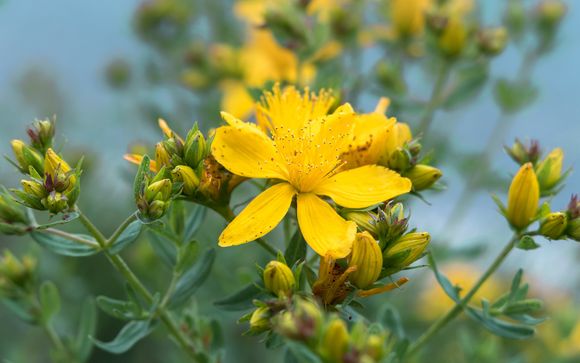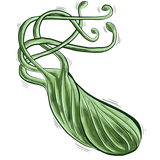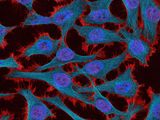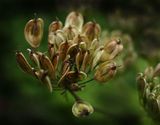Author: Sylvia Marinova, PhD student in the "Genomic Stability" lab at BAS
Tall bare stem, strongly branched in its upper part, where the well-known inflorescences with their yellow color are located. Distributed throughout the country in grassy and overgrown areas, along roads, in sparse forests and clearings. Grandma's favorite for teas and beautiful bouquets. Blooms from May to August ..
I don't think many people would have had a hard time recognizing it, except for me in high school, when I almost slightly poisoned our respected volleyball coach with specially prepared tea from the herb in question, which subsequently turned out to be a completely different plant. One of the most characteristic hallmarks of St. John's wort is encoded in its name- perforatum , since looking against the light, its petals are dotted with numerous small holes, representing glands filled with essential oil.
So - Hypericum perforatum, or simply St. John's wort - is undoubtedly one of the most used herbs. Its history dates back more than 2,400 years and is full of cultural nuances and mystical legends about magical properties, amulets, the exorcism of evil forces and religious practices.
Even the ancient Greek herbalists Hippocrates, Theopras, Dioskorid and Gallen described various uses of the herb in the bite of poisonous snakes, menstrual pains, digestive tract disturbances, pain, depression and melancholy, burns and superficial wounds.
In other words, known since antiquity for its healing potential, St. John's wort has become an indispensable part of traditional medicine, and in recent decades it has managed to provoke a serious scientific interest.
Of particular importance and among the best-studied applications is the treatment of mild to moderate forms of depression, but in addition, modern science describes and confirms the other of its above qualities.
Harvesting
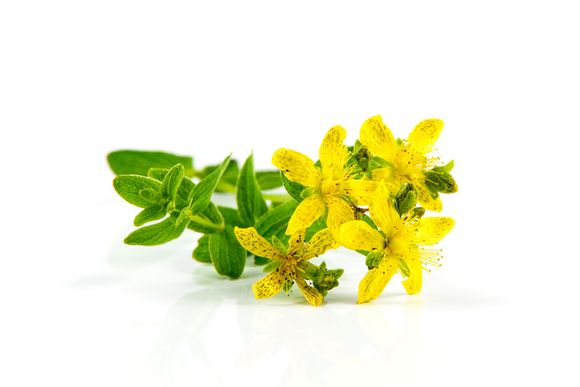
The herb is harvested shortly before or during flowering. The above-ground leafy part with the buds and flowers about 20 cm below the top is used. Overblown stalks should not be collected.
Drying should begin immediately after collection in order to preserve the active substances. It is collected in loose bundles, which are hung for drying.
Composition of St. John's Wort
The water-alcohol extract from the ground parts of St. John's wort contains six main groups of substances [ref.1]:
- naftodiantrons - these compounds have an intense red color and phototoxic properties. The best known representatives of this group of compounds are hypericins. They are also of great interest for the medicinal properties of the plant and in particular the antiviral action. Hypericin is known to make cells more sensitive to light and this leads to more damage [ref.2]. For this reason, we should not expose ourselves to the sun if we have applied an ointment containing St. John's wort or have taken it in the form of tea;
- floroglucinols - here we need to mention hyperphoric . On it is due to the use of St. John's wort as an antidepressant;
- flavonoids - they include most bioactive compounds in St. John's wort. Examples are kaempferol, quercetin, rutin. They have antispasmodic properties . Rutin is also important for the antidepressant action of the herb;
- biflavones;
- phenylpropanes;
- thanins - antioxidant, antiviral and antimicrobial properties are also due to the thanins content.
The dry drug contains all the listed compounds, as well as some essential oils, vitamins, carotenes and others.
St. John's Wort as a Natural Antidepressant
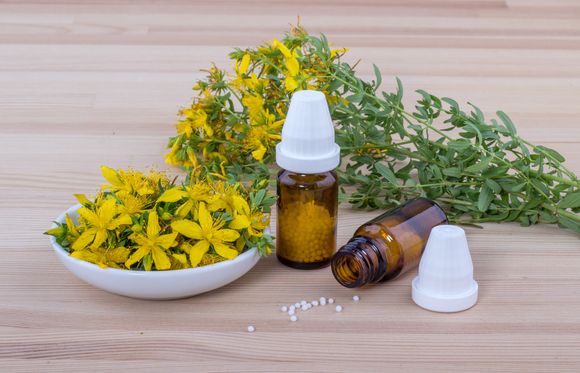
Let's start with the best studied action of the herb - as an antidepressant.
Depression is a common condition that affects our thoughts, the way we feel and significantly deteriorates quality of life. The herb has been used for centuries against depressive disorders and its use continues today as part of conventional medicine, especially in Europe [ref.3].
There are studies that explain the mechanism of action [ref.4], as well as clinical trials. A large-scale review study from 2016 compared data from different clinical trials examining the efficacy of St. John's wort against depression [ref.5]. The findings are that the mild and moderate forms of depression are affected by the herb as compared to placebo. The data is insufficient to judge about severe forms of depression, as well as about its side effects.
Analgesic Properties
St. John's wort can increase the threshold of acute and chronic pain due to its analgesic properties. This action is known in traditional medicine and has also been confirmed in rodents and humans by modern research in the field [ref.6].
Even Dioscoride notices the beneficial effect of the herb in sciatica, and today there are already studies proving its effects in neuropathies. Taking the herb is also recommended for menstrual pain, toothache, otitis and others.
St. John's Wort for Wounds and Burns
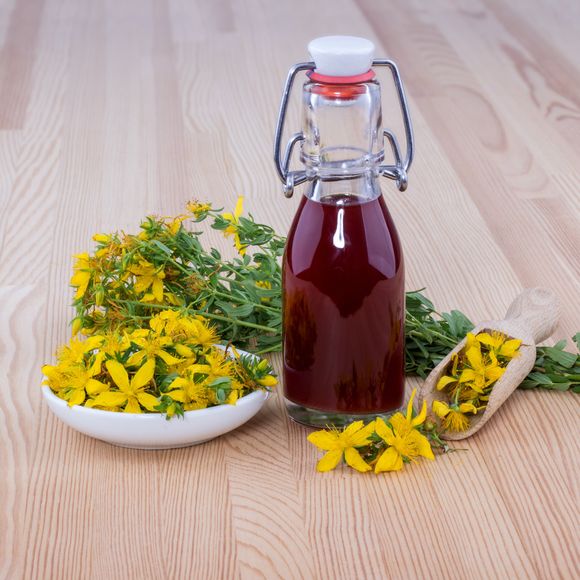
Here is the place to mention the favorite ointment of our grandmothers from olive oil and St. John's wort . Its miraculous action is not a coincidence at all. The herb has a highly stimulating effect on wound healing, as it stimulates the productionof collagen. In addition, antibacterial function helps the healing process further.
The recipe for St. John's wort in olive oil can be found below, as well in the article Russian folk medicine for healthy skin. Part 1: herbal remedies for vitiligo, infections, warts
St. John's Wort for Gastrointestinal Disturbances
As mentioned, the herb promotes the healing effect of mucous membranes - including those that cover the digestive tract.
Anti-inflammatory, as well as antidepressant properties are also beneficial, since the intestines and brain are more directly related than we think, and often stress is the unlocking mechanism for our digestive problems [ref.7].
Read more in the article .
Recipes
Recipe for decoction of St. John's wort: 2 tablespoons of the dried herb are placed in 500 ml of boiling water for 5 minutes. Drink before meals.
Olive oil extract : About 100 g of the freshly harvested herb is soaked in 500 ml of olive oil and left in a sunny place for at least 2 weeks.
This extract can be applied externally for injuries, burns, abrasions or local neuralgic pain, rheumatism, etc. In Bulgarian traditional medicine, the 1 spoon of the extract can be also taken internally before breakfast, lunch and dinner.
Precautions

As my high school volleyball coach would surely confirm, the notion that natural remedies are harmless is very often wrong and can lead to abuse. And this herb, like all others, should be taken with caution [ref.8]:
- St. John's wort interacts with many medicines and may reduce their effect.These include some antidepressants, birth control pills, some heart medications, warfarin (an anticoagulant, ie anticoagulants), HIV medications, and more. Be sure to talk to your doctor or pharmacist if you are taking other medicines
- It should be taken in moderation, especially if you are about to be exposed to the sun. In general, its use is not recommended for people who are hypersensitive to ultraviolet light. External use can also cause severe burns due to the phototoxic effect of hypericin.
Read more in the article Herbs and plants that act as sunscreen
Nature has given us priceless gifts, but it's up to us to use them wisely. :)
